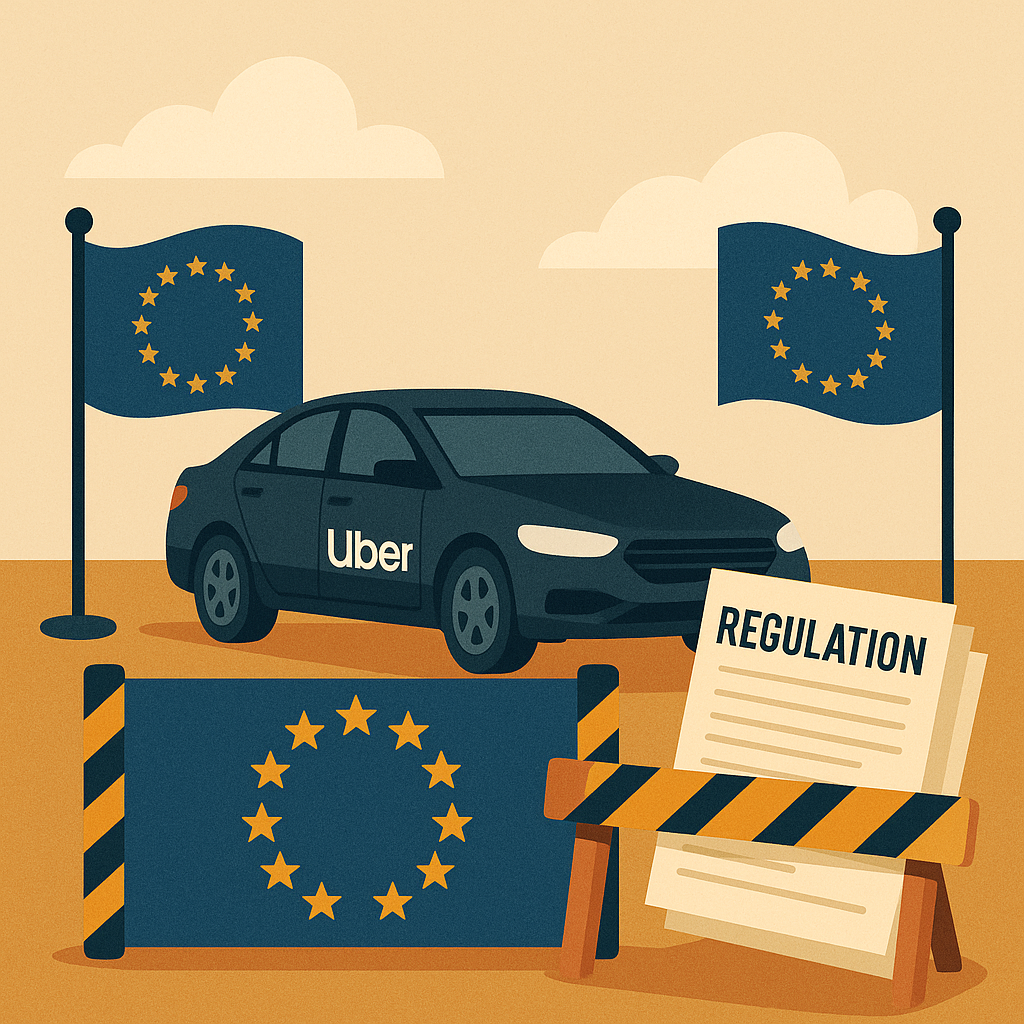Uber’s Struggles with European Regulations A Case Study

When Uber arrived in Europe it was a game changer. App based ride hailing, competitive pricing and a global brand was going to kill traditional taxis in the major cities. But Uber’s rapid expansion in Europe wasn’t without its problems, especially when it came to the complex and often contradictory regulations.
The Early Success and Rapid Growth
Uber’s expansion in Europe started with UberPop in 2011. The idea was simple: an app that would allow people to use their own cars as taxis, bypassing the bureaucracy and offering cheaper, more flexible rides than traditional services. Uber scaled fast by tapping into the demand for affordable and efficient transport, taking a big chunk of the market in London, Paris and Berlin.
For a while this model seemed unbreakable. Uber’s presence in major European cities grew fast, disrupting the local taxi industries, offering lower prices and attracting both riders and drivers. But this growth came with increasing legal and regulatory heat.
The Backlash
As Uber’s market share grew so did the resistance from local taxi associations and government regulators. The main concern was that Uber’s model was circumventing the existing regulations that protected traditional taxi services. In many European countries the taxi industry operates under strict licensing and pricing regulations, drivers have to meet specific standards. Uber on the other hand used a flexible model that didn’t follow these rules, so it was accused of unfair competition.
In cities like Paris, Barcelona and Brussels Uber faced lawsuits, protests and even bans. In some cases taxi unions launched mass protests, blocking the streets and demanding stricter regulations for the ridesharing companies. These protests reflected a growing feeling that Uber was killing the livelihood of thousands of traditional taxi drivers who were bound by licensing requirements, insurance standards and local laws.
Key Cases
One of the biggest legal battles Uber faced in Europe was in the European Court of Justice. In 2017 the Court ruled that Uber should be considered a transport service not a digital platform. This changed everything for Uber in Europe, as it meant they would be subject to the same regulations as traditional taxi services, including driver background checks, insurance and licensing.
The ruling also allowed national governments to impose stricter regulations on Uber. In response Uber had to adapt its operations in several European markets, sometimes pulling out of cities altogether. In countries like France and Spain Uber faced additional regulatory hurdles, including having to register its drivers as professional chauffeurs and comply with local laws governing the transport industry.
Navigating the Maze
Despite all this Uber has managed to survive and even flourish in some European markets. The company took a more collaborative approach to regulators in some places, working to comply with new rules while also pushing for policy changes that would make it easier for ride hailing to operate.
For example Uber was able to continue to operate in London after making some operational changes, like improving driver background checks and safety features. In other cities Uber partnered with local taxi companies to offer a hybrid service that combined the Uber app with traditional taxis to bridge the gap.
Key Points for Business
- Know the Local Rules: Research the local laws and regulations before entering a new market. Uber didn’t do that and it cost them and delayed their entry.
- Adapt to Local Markets: Global expansion is important but businesses need to be willing to adapt to local needs and requirements. Uber’s one size fits all approach worked in some markets but created friction in others.
- Talk to Regulators: In highly regulated industries talking to local regulators is key. Uber’s confrontational approach created more friction. A collaborative approach might have avoided legal headaches.
- Plan for the Worst: Regulatory setbacks can be costly and disruptive; having a plan B reduces risk. Be prepared for bans or sudden changes.
- Listen to the Public: Public opinion can be powerful when navigating regulations. Understand local community and stakeholders to adjust your approach.
Conclusion
Uber’s experience in Europe shows the challenges that startups and global companies face when trying to disrupt established industries. While Uber managed to adapt and stay in many European cities, the regulatory headaches are a warning to businesses looking to enter new markets. By knowing the local regulations, talking to regulators and having a plan B businesses can navigate the global expansion landscape.
Uber’s experience in Europe also shows that flexibility is key. Businesses that are too rigid will hit many roadblocks; those that are willing to adapt and collaborate with local stakeholders will win.
Need help navigating complex regulations?
We can help you understand local laws, adapt your operations, and thrive internationally. Contact Us Now.

